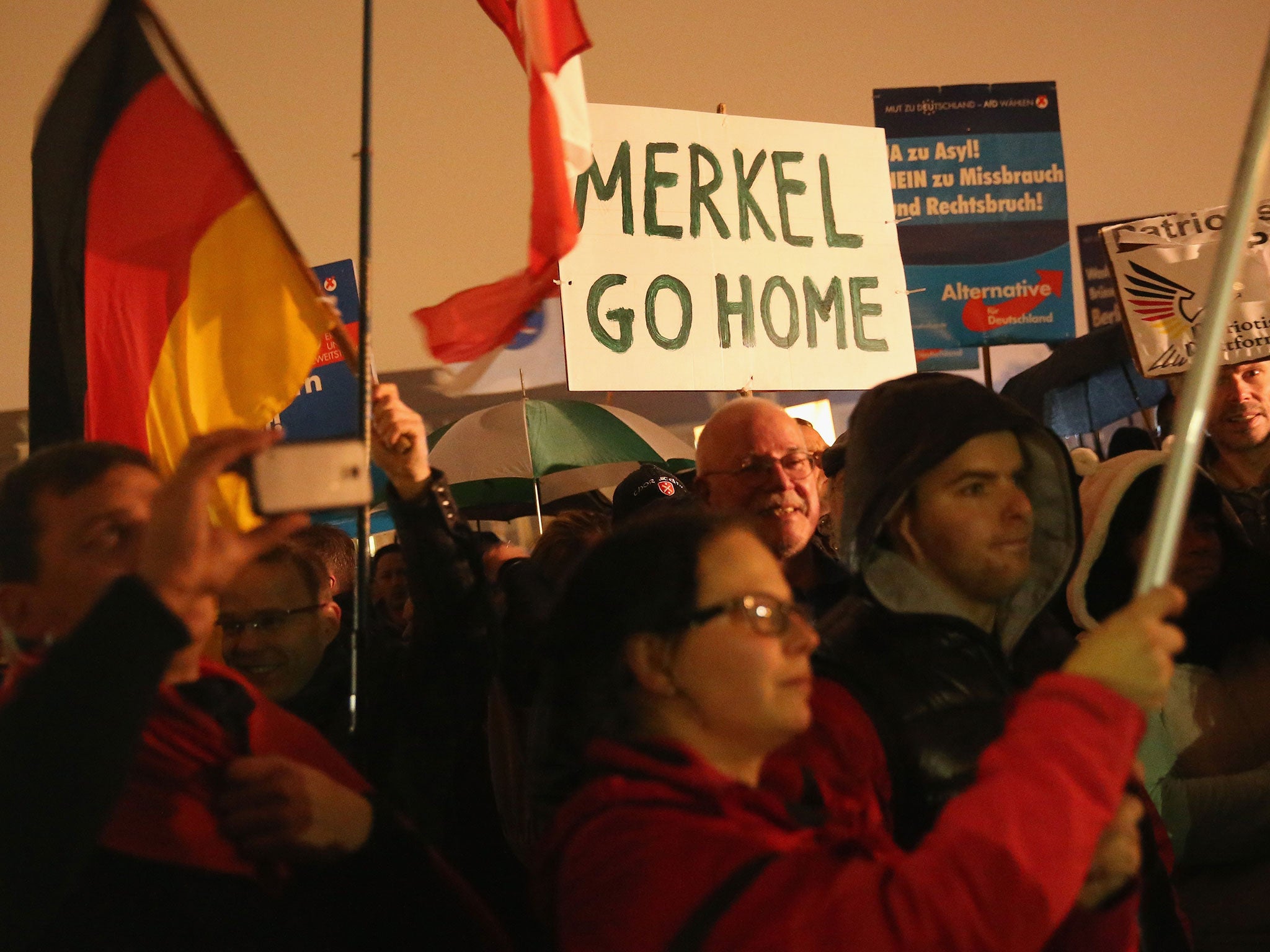Germany: Angela Merkel’s coalition split over border ‘concentration camps’ as pressures of refugee crisis take toll
Praised for its dealing with the crisis, Germany is nonetheless struggling

Your support helps us to tell the story
From reproductive rights to climate change to Big Tech, The Independent is on the ground when the story is developing. Whether it's investigating the financials of Elon Musk's pro-Trump PAC or producing our latest documentary, 'The A Word', which shines a light on the American women fighting for reproductive rights, we know how important it is to parse out the facts from the messaging.
At such a critical moment in US history, we need reporters on the ground. Your donation allows us to keep sending journalists to speak to both sides of the story.
The Independent is trusted by Americans across the entire political spectrum. And unlike many other quality news outlets, we choose not to lock Americans out of our reporting and analysis with paywalls. We believe quality journalism should be available to everyone, paid for by those who can afford it.
Your support makes all the difference.Angela Merkel is facing a major coalition split over plans to build border “transit zones”, which critics have said would amount to “concentration camps” for refugees.
Germany, widely praised for the compassionate way its government has dealt with the refugee crisis, is struggling to cope with the number of arrivals and the need to house them safely as the weather worsens.
Ms Merkel tasked her interior minister, Thomas de Maiziere, and the head of her new migrant crisis unit, Peter Altmaier, to come up with workable solutions to slow down the influx as it heads towards a predicted one million people by the end of the year.
But their proposal for “transit zones” to speedily process and repatriate economic migrants before they can get too far into the country have drawn unfavourable comparisons to Nazi Germany.
It would entail extending to Germany's land borders a system in place at airports, where migrants arriving from countries considered safe or people without papers can be held for two days without formally entering the country while their asylum applications are considered.
Measures to reduce refugee numbers have been called for by the right wing, which has seen a resurgence since the start of the crisis in the form of Dresden’s Pegida.
Merkel's conservative bloc is pushing the idea and its branch in Bavaria, which has taken the brunt of the arrivals, is particularly keen.
Vice Chancellor Sigmar Gabriel, who has said the proposal appears aimed mainly at smoothing over recent differences among the conservatives, said Wednesday his Social Democrats wouldn't back a system that entails people being interned at the border.
Putting all newcomers into camps at a time when 6,000 to 10,000 people a day are arriving would lead to "enormous facilities with large numbers of people formally taken into custody," he said. "I don't think that is legally possible, and I think it would lead to conditions we don't want to have in Germany."
Germany has seen large numbers of people from Albania, Kosovo and other Balkan countries who have virtually no chance of gaining asylum arrive this year. It already is moving to declare those countries "safe."
Gabriel said arrivals from there already are falling sharply and it's important to ensure that those who have arrived leave faster.
Join our commenting forum
Join thought-provoking conversations, follow other Independent readers and see their replies
Comments